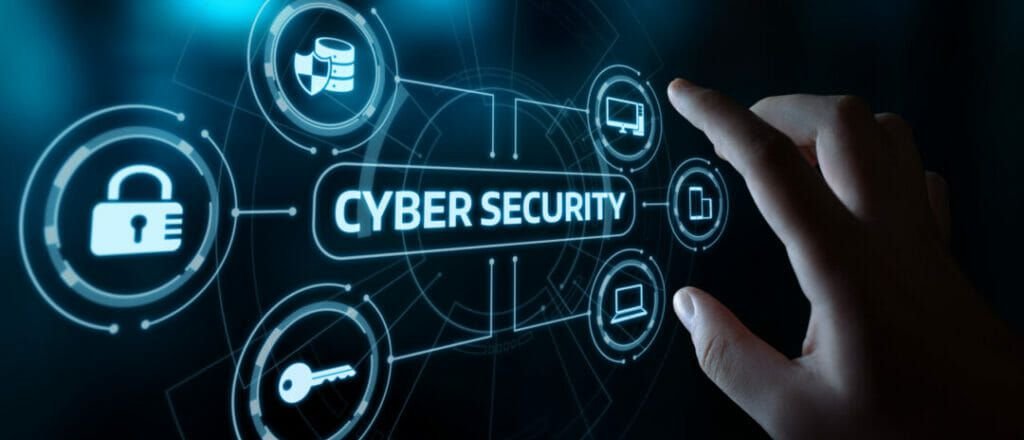The Cybersecurity course we offer at Imarticus delves into the vast topic of cybersecurity, focusing on the significance of data confidentiality, cybersecurity, best practices for using social media and the internet securely, and prospective job prospects in this rapidly increasing industry. It discusses how to secure your privacy and personal data online and on social media, as well as why cybersecurity knowledge and awareness are becoming increasingly important in IT careers.
We are all increasingly exposed to cyber-attacks in today's linked society. The cyber security certifications online are for you whether you're drawn to the relatively new field of cybersecurity professions or just want to safeguard yourself online and on social media.
It delves into cyber trends, risks, and the broader issue of cybersecurity in a way that is personally relevant to you. You will, for example, learn how to safeguard your privacy online and about the issues that corporations, governments, and educational institutions face.
Cybersecurity: Necessity and Opportunity for Every Profession.
From a hazy rumor to an ethereal reality, the phrase has come a long way.
Functioning in an ever-changing, fast-paced, and frequently hostile environment is becoming increasingly challenging for security employees with minimal IT or administrative abilities. As the globe becomes increasingly networked and globalized, the lines between security and technology departments are dissolving and merging.
Every social, commercial, and governmental layer is affected by cybersecurity. To interfere with the US election, a country can manipulate public opinion. Terrorists may attempt to hack into a nuclear power plant's network. For ransom, a criminal network might take over a company's database. Hacking into ATMs in Taiwan resulted in the theft of more than $200,000 in one night. Hackers gained access to the computers of prominent stock market investors, allowing them to purchase shares in milliseconds.
To pass on secret information, a manager may be blackmailed for virtual sex ("Sextortion"). With a single mouse click, an employee may download a virus and shut down the firm for a day, resulting in millions of dollars in damages. This is only the tip of the iceberg when it comes to the possibilities. We must prepare for what is still to come, which we cannot conceive. It is necessary to plan ahead.
Surveillance cameras, physical barriers and high walls, and ongoing training are all part of today's security systems, yet everything is placed in danger every time someone walks past the security arch with a smartphone and a flash drive, and no one seems to notice.
CTF
Today's security measures include high walls and physical barriers, surveillance cameras, and continual training, yet everything is put in jeopardy whenever someone passes past the security arch with a flash drive and a smartphone, and no one appears to notice.
To summarize, each CTF's goal is to complete a sequence of tasks that progressively become more difficult as the number of points indicated in each job increases. These tournaments normally last 2-3 days, after which writeups for each suggested challenge are released willingly, allowing other players to learn about their strategies. If a challenge is not completed by a particular number of teams, the CTF organizers will generally provide some tips to make obtaining the flag, also known as a key, simpler.
CTFs can be classified into the following groups:
- Miscellaneous [Misc]: Random challenges that can belong to different unspecified categories.
- Trivia: Different questions related to computer security.
- Recognition [Recon]: Searching for the flag in different sites on the Internet. Clues, such as a person's name, are given to solve it.
- Web: Discovery of vulnerabilities in a web application.
- Programming [PPC]: Also known as PPC (Professional Programming & Coding), challenges that require developing a program or script that performs a certain task.
- Reverse engineering [Reversing]: Inferring in the operation of the software. Most commonly, Windows and Linux binaries.
- Pwning: Discovery of vulnerabilities in a server.
- Steganography [Stego]: Images, sounds, or videos that hide information inside.
- Cryptography [Crypto]: Texts encrypted using a specific cryptosystem.
- Forensics: Most common; memory images, hard disk images or network captures, which store different types of information.
Conclusion
Become a certified ethical hacker by taking one of our Cybersecurity programs. Here at Imarticus, you can study to be a certified ethical hacker and participate in a CTF. Visit our website today to learn more.










